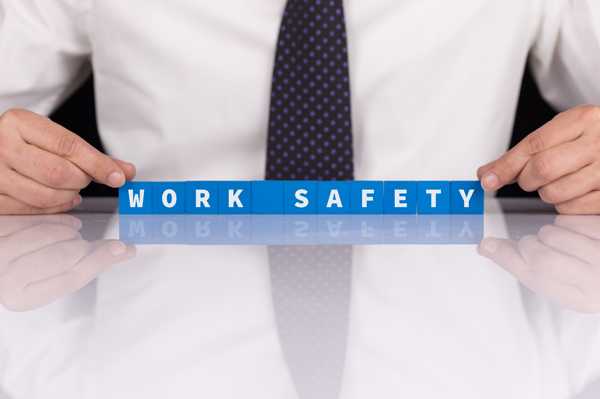February is #NationalHeartMonth, a time to focus on heart health and raise awareness about the importance of quick action in emergencies. In Ontario, heart disease, stroke, and cardiac arrest are significant health challenges. However, there are simple yet effective ways that ordinary people can help make a life-saving difference. Cardiac Arrest in Ontario: The Need for Swift Action Each year, more than 8,000 Ontarians suffer from out-of-hospital cardiac arrest. These life-threatening emergencies happen suddenly, and survival chances decrease dramatically—by as much as 7-10% per minute—without immediate intervention. This is where knowing what to do in the first few moments can …
Empower Yourself with First Aid Training: Be Prepared for Emergencies
When emergencies happen, knowing how to respond quickly and efficiently can save lives. At First Aid Canada, our first aid training courses equip you with the skills and confidence to act quickly during life-threatening situations. Whether at home, work, or out in public, being trained in CPR and 1st aid prepares you to handle everything from minor injuries to serious emergencies like cardiac arrest or choking. Our emergency first aid course covers all the necessary skills such as: Basic first aid techniques for wounds, bleeding, and burns Performing CPR on infants, children, and adults Using an Automated External Defibrillator (AED) …
CPR First Aid Training and Community Preparedness
Often when people think of emergencies, they picture Paramedics and Doctors stepping in to save the day, and a life. But many medical emergencies begin with the need for on hand and immediate assistance. What if you could be the one providing that vital care? Getting CPR 1st aid training not only equips you with crucial skills but also helps you become an active part of your community’s safety net. Many organizations and workplaces now prioritize emergency training and preparedness, but it doesn’t have to just be about fulfilling a requirement. By becoming CPR and first aid certified, you’re investing …
Preparing for Outdoor Adventures in Canada’s All Season Climate
Canada’s breathtaking wilderness is a playground for outdoor enthusiasts, but it’s also home to unpredictable conditions that can turn a fun adventure into an emergency. Whether you’re hiking, camping, or out on the water, having a first aid certificate in Canada can be a critical part of your outdoor preparedness. Knowing how to respond to injuries or accidents can make all the difference when professional help isn’t immediately on hand. This is why CPR and first aid training courses are essential lifesaving skill for all Canadians. Whether it’s a twisted ankle on a trail, a severe allergic reaction, or even …
A Guide for AED Users: Responsible Disposal of AED Accessories
Automated External Defibrillators (AEDs) are crucial life-saving devices, but as responsible users, it’s essential to understand the proper disposal methods for expired AED pads, batteries, and units. In this guide, we’ll explore the eco-friendly and safe ways to dispose of these components, ensuring both environmental sustainability and public safety. Expired AED Pads: Electronic Waste Recycling AED pads, equipped with electrodes and electronic components, should be treated as electronic waste. To dispose of expired AED pads responsibly: Take them to an accredited electronics recycling facility. Participate in electronic waste recycling programs available in your community. If AED pads have been contaminated …
Winter and Your Heart: Navigating Cardiovascular Risks
Winter brings more than just frosty temperatures; it may also impact our cardiovascular health. Let’s explore the connection between cold weather and heart concerns, along with practical steps to safeguard your well-being. The Cold Snap and Cardiovascular Risk: Studies suggest that exposure to cold weather can strain the cardiovascular system, potentially leading to increased blood pressure, blood clot formation, and a higher heart rate. Protecting Your Heart in Winter 1. Bundle Up: Dress warmly to reduce the body’s stress response. Layer clothing and cover extremities to maintain body heat. 2. Stay Active: Opt for indoor exercises to counteract the sedentary …
How to Make Your Workplace a Safer Place
How to Make Your Workplace a Safer Place Office safety is crucial in any workplace. If you haven’t had the opportunity to read up on the Provincial Safety Requirements for your province on our blog you should definitely do so by clicking here or finding your province below: British Columbia Alberta Saskatchewan Manitoba Ontario Quebec Newfoundland & Labrador Nova Scotia New Brunswick Prince Edward Island Along with an adequate first aid kit is important to have an Automated External Defibrillator onsite in the office. Cardiac arrest can occur at any age and it has even been recorded that the most …
How to Make Your Restaurant a Safer Place
Are you in the service industry? Well then this blog is sure to come in handy. Here are some of our greatest tips on how to keep your work environment a safe one: Blue Detectable Bandages Have you ever been served a dish with something unpleasant and unexpected in it, for example, a hair? It completely ruins your meal and sometimes even your entire appetite. Could you imagine finding a bandage in your dish? Horrible thought, isn’t it? First Aid Canada proudly supplies restaurants with blue detectable bandages. These bandages are bright blue in colour and come in a variety …








